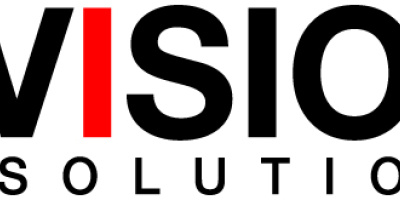If you're feeling the pressure to take your System i (iSeries) data protection and recovery capabilities to another level, you're not alone. Many IT managers are looking for options, and high availability (HA) is showing up on the top of the list. This is for good reason: HA technology mirrors business-critical applications, data, spool files, IFS, configuration data, and more to a second system—all in real-time. It is by far the most effective way to achieve rapid and virtually complete recovery of an iSeries environment after a system failure or site disaster.
Like any technology, HA's features, functionality, and price differ among products. What matters is that you find a reliable, cost-effective solution to fit your needs.
Since its inception in 1997, iTera has endeavored to make HA easy to use, reliable, and affordable, particularly for small organizations. Today, iTera provides high availability technology in two products: Echo2 HA Edition and Echo2 HA Enterprise Edition. If your company uses or intends to use IBM's independent ASP (IASP) or cross-site mirroring (XSM) technologies, then Echo2 HA Enterprise is the right choice; otherwise, Echo2 HA Edition will fully handle your HA needs.
Release 4.2 is the latest version of Echo2 HA Edition (hereafter referred to simply as Echo2), and its new features that enhance HA ease of use and reliability are the subject of this product review.
Native Remote Journaling Architecture
Before outlining the new features in Echo2 4.2, it's worth mentioning remote journaling and the importance of natively incorporating the technology into an HA architecture.
Introduced with OS/400 V4R2 in 1999, remote journaling allows a carbon copy of each journal entry created on the production environment to be sent to a second iSeries environment—whether it is on the same machine or on a different one. Remote journaling dramatically improved the performance of the HA replication process, and iTera was one of the first HA vendors to utilize it. Prior to remote journaling, HA relied on standard journaling processes, which meant that the HA software had to manually "scrape" pertinent information from journal entries as they were created, queue the information for transport to the second environment, transport the information, and then queue the data on the second environment before it could be applied to database objects. Remote journaling eliminated these manual processes and pushed the whole process below the machine interface (MI) layer.
Eventually, remote journaling was embraced by and incorporated into nearly all HA products on the market. There is a difference, however, in how remote journaling technology is utilized. Echo2 incorporated remote journaling into the original design of the product rather than retrofitting it into a pre-existing architecture. This eliminated user/log spaces from the HA process on both machines. These data spaces are the queuing/holding stations needed for the data transport process prior to the advent of remote journaling. Retrofit remote journaling eliminates log spaces on the production machine, but not on the target, so data still has to be routed through these spaces on the target, causing extra CPU cycles and adding data loss vulnerability should a system suddenly fail. In addition, retrofit remote journaling typically requires a complex data-apply process.
Because remote journaling is natively incorporated into Echo², this vulnerability, extra overhead, and complexity are eliminated, which equates to a more reliable HA solution.
A "Cache" of a Different Type
Release 4.2 increases HA performance and reliability through a new technology called Concurrent Audit Concurrent Heal—Echo² (CACHe2), which monitors for database synchronization problems between replication environments and automatically heals problems at the record level.
Until CACHe2, resynchronization of database objects could occur only at the object level. In other words, when an out-of-synch object is discovered on the backup environment, it is completely replaced with the correctly updated object from the production environment. But iTera's patent-pending CACHe2 technology is able to discover and heal synchronization problems at the record level, which rectifies the situation more quickly, while reducing the amount of disk I/O and bandwidth utilized by HA processes.
Autonomic Capabilities = Ease of Use
When HA software automatically monitors for and corrects problems in the data replication environment, the product is easier to use and requires less operator time. And, most importantly, data integrity between environments is more likely be maintained.
In addition to automatically detecting and healing out-of-synch objects at the record level, Echo2 monitors for and repairs problems with journaling components in the OS.
Release 4.2 introduces the E2 Apply Accelerator, which automatically improves the performance of the apply process (the process of journaled record changes being applied to the mirrored data file) when large bursts of transactions occur. For instance, if the apply process falls behind due to a spike in transactions, the E2 Apply Accelerator automatically engages additional processes to quickly eliminate latency.
E2KG, another new autonomic process in Release 4.2, can be configured to run at regular intervals to keep the HA environment running optimally and to ensure that periodic data integrity audits are not skipped or forgotten. This reduces the time needed for system-monitoring by operators and adds another layer of data-integrity insurance. In addition, E2KG regularly and automatically runs the many necessary HA environment checks that are normally required prior to a switchover (the process of moving users/processes to a backup environment), which helps ensure this critical process occurs faster and more reliably.
The bottom line: Self-healing, self-managing processes dramatically improve HA reliability and reduce HA management time. Because of these, most Echo2 users manage their HA solution in 20 minutes or less per day.
Costs Less Than You Think
Echo2 can be purchased for as little as $50 per day, and this includes a new IBM System i5 (Model 520), Echo² HA licenses for two environments, implementation and training, and an Echo2 support contract. This cost is based on purchasing the package on a three-year IBM FMV lease (subject to credit approval by IBM Global Financing). Visit iTera's Web site to learn more.
Russ Roberts is Senior Developer, HA, at iTera, Inc., a premier provider of high availability software for the IBM iSeries (System i5). For more information, call 800.957.4511 (in the U.S. and Canada) or 801.799.0300. Or email Russ at





















 More than ever, there is a demand for IT to deliver innovation. Your IBM i has been an essential part of your business operations for years. However, your organization may struggle to maintain the current system and implement new projects. The thousands of customers we've worked with and surveyed state that expectations regarding the digital footprint and vision of the company are not aligned with the current IT environment.
More than ever, there is a demand for IT to deliver innovation. Your IBM i has been an essential part of your business operations for years. However, your organization may struggle to maintain the current system and implement new projects. The thousands of customers we've worked with and surveyed state that expectations regarding the digital footprint and vision of the company are not aligned with the current IT environment. TRY the one package that solves all your document design and printing challenges on all your platforms. Produce bar code labels, electronic forms, ad hoc reports, and RFID tags – without programming! MarkMagic is the only document design and print solution that combines report writing, WYSIWYG label and forms design, and conditional printing in one integrated product. Make sure your data survives when catastrophe hits. Request your trial now! Request Now.
TRY the one package that solves all your document design and printing challenges on all your platforms. Produce bar code labels, electronic forms, ad hoc reports, and RFID tags – without programming! MarkMagic is the only document design and print solution that combines report writing, WYSIWYG label and forms design, and conditional printing in one integrated product. Make sure your data survives when catastrophe hits. Request your trial now! Request Now. Forms of ransomware has been around for over 30 years, and with more and more organizations suffering attacks each year, it continues to endure. What has made ransomware such a durable threat and what is the best way to combat it? In order to prevent ransomware, organizations must first understand how it works.
Forms of ransomware has been around for over 30 years, and with more and more organizations suffering attacks each year, it continues to endure. What has made ransomware such a durable threat and what is the best way to combat it? In order to prevent ransomware, organizations must first understand how it works. Disaster protection is vital to every business. Yet, it often consists of patched together procedures that are prone to error. From automatic backups to data encryption to media management, Robot automates the routine (yet often complex) tasks of iSeries backup and recovery, saving you time and money and making the process safer and more reliable. Automate your backups with the Robot Backup and Recovery Solution. Key features include:
Disaster protection is vital to every business. Yet, it often consists of patched together procedures that are prone to error. From automatic backups to data encryption to media management, Robot automates the routine (yet often complex) tasks of iSeries backup and recovery, saving you time and money and making the process safer and more reliable. Automate your backups with the Robot Backup and Recovery Solution. Key features include: Business users want new applications now. Market and regulatory pressures require faster application updates and delivery into production. Your IBM i developers may be approaching retirement, and you see no sure way to fill their positions with experienced developers. In addition, you may be caught between maintaining your existing applications and the uncertainty of moving to something new.
Business users want new applications now. Market and regulatory pressures require faster application updates and delivery into production. Your IBM i developers may be approaching retirement, and you see no sure way to fill their positions with experienced developers. In addition, you may be caught between maintaining your existing applications and the uncertainty of moving to something new. IT managers hoping to find new IBM i talent are discovering that the pool of experienced RPG programmers and operators or administrators with intimate knowledge of the operating system and the applications that run on it is small. This begs the question: How will you manage the platform that supports such a big part of your business? This guide offers strategies and software suggestions to help you plan IT staffing and resources and smooth the transition after your AS/400 talent retires. Read on to learn:
IT managers hoping to find new IBM i talent are discovering that the pool of experienced RPG programmers and operators or administrators with intimate knowledge of the operating system and the applications that run on it is small. This begs the question: How will you manage the platform that supports such a big part of your business? This guide offers strategies and software suggestions to help you plan IT staffing and resources and smooth the transition after your AS/400 talent retires. Read on to learn:
LATEST COMMENTS
MC Press Online